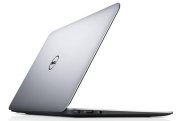I think the idea of the “post-PC era” needs some clarification. There is much hoopla and fanfare being dedicated to dwindling PC sales, and the idea that tablets--specifically the Apple iPad--are going to be the death knell for PCs. It’s not a “death”, it’s an “evolution” and the tablet is just the new PC.
What is a “PC”? It simply stands for “personal computer”. I have had debates in the past with people telling me that PCWorld shouldn’t write about Macs. But, a Mac is a “personal computer”, and our name is not “Windows PCWorld” (it’s funny that nobody ever seems to make that distinction when we write about Linux).
But, I digress. Back to tablets. The advent of tablets may be a harbinger of doom for traditional operating systems like Windows and Mac OS X, but not for PCs. The tablet is a PC itself--it is a device or platform a person uses for computing.
When mini-towers came along, nobody ran around claiming that the sky was falling and that the PC as we know it is dead. When laptops became notebooks, then netbooks, then ultrabooks there was no panic about the end of the PC. They’re all just variations on a theme--different sizes and shapes of personal computers. The same is true for tablets.
Will the iPad impact traditional PC sales? Probably. It should. For the vast majority of both business and consumer PC users, the iPad (or tablets in general) provide all of the core functions, such as email, Web surfing, basic productivity, casual gaming, social networking, etc.. And, they have the added benefit of being slim, light, and having battery endurance that can make it through the entire day…and then some.
Ultrabooks offer a close comparison in terms of features and benefits while still fitting the mold of the traditional PC. The MacBook Air is a huge success, and it seems like there is significant demand for the coming onslaught of Windows-based ultrabooks.
There will certainly still be pros and cons to both, but the primary difference at some point will be price. If an ultrabook is $1000, but an iPad 2 is $400, the iPad 2 represents a better value for those who only need the capabilities a tablet can deliver. It makes sense to go with the new PC form factor--the tablet.
If you want more evidence that tablets are the next evolution of PCs rather than a conquering hoard intent on crushing the PC market, just look at Apple and Microsoft. Both of the major desktop operating systems are being merged and transformed to adapt to the new mobile world--evolving to meet the needs of the latest PC form factor.
As the mobile and desktop operating systems for both Apple and Microsoft seem to converge and meld into one, the line gets blurry on the differences between the two in terms of experience, and it just comes down to picking the size and shape of PC that works best for you whether that is a desktop, ultrabook, or tablet.















